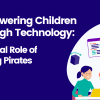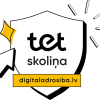The Blue Ant Code - Spain
Context
Learning to program at an early age is a vehicle for the development of 21st century cognitive and digital skills that must be acquired from an early age in order to adapt adequately to today's computerised society, such as Computational Thinking (CT) skills. The learning and assessment of these digital skills and CT-related skills in formal education is gaining importance internationally, and there is a consensus that this learning should start at an early age.
On the other hand, game-based environments are often used for learning with young children, as the motivation and engagement of the learner is higher than through traditional classroom methodologies and therefore a deeper and more authentic understanding of the underlying principles being taught is achieved.
With Blue Ant Code children develop digital skills through programming while being assessed through learning analytics. Data analysis allows teachers to offer personalised attention and to understand children's motivations, interests, and behaviours in the face of digital challenges.
The Blue Ant Code
The Blue Ant Code was launched in September 2021 in Spain and Portugal as an initiative by the Universidad Rey Juan Carlos and TreeTree2. The initiative is developed in the form of a video game, with individual and collaborative modes in order to develop digital skills such as abstraction, problem decomposition, algorithmics, evaluation, data analysis, and generalisation through learning to code. It operates in two platforms, Android and iOS.
Blue Ant Code has a version for school contexts that includes the possibility of assessment of these skills by teachers in real time or later, through learning analytics embedded in the game, in a nonintrusive way: the student does not perceive that they are being assessed, and this assessment does not interfere with the flow of the game; therefore it does not harm their motivation, and allows teachers to offer more personalised attention depending on the development of the student at any given moment. You can get a preview in video on how it works here.
Who are the beneficiaries?
The initiative is aimed at both school and non-school contexts. In terms of school contexts, it is aimed at pre-school and primary school pupils. In non-school contexts, it is aimed at pupils from 3 to 12 years old. Given the age of these children, it is not necessary to be able to read or write in order to participate in the initiative. Nor is any previous training or knowledge necessary.
The Blue Ant Code version for non-school contexts allows to assess aspects related to intrinsic motivation, interests, skills, persistence in solving a problem and behaviour in response to rewards. These aspects directly affect academic achievement and performance, so it is necessary to analyse possible differences in children's age and gender to adjust school curricula that address digital skills and computational thinking.
Furthermore, the analysis of these aspects helps advance in the development of applications, methodologies, and platforms for better development, learning and assessment of digital skills in our child population.
Why is this a good practice?
The project was firstly carried out in schools in Spain. In addition, it was massively deployed and the data of 4124 users and 28187 games from 53 countries were analysed. Blue Ant Code is currently being deployed as a pilot study in a school in Portugal, to be later deployed in other schools in Portugal. It is also intended to carry out studies in school contexts in other countries. In addition, the deployment continues in non-school contexts, with more than 11000 children and more than 61000 games played in 53 different countries. All the data collected are currently being analysed in order to continue adapting the platform and drawing conclusions that will help teaching methodologies and evaluation in general
The future of The Blue Ant Code
Although the project was designed to span over 4 years (2021-2025), the URJC research group intends to add modules to develop digital skills from different perspectives. They plan to continue with the deployment in school contexts (URJC and TreeTree2 have a large infrastructure of international contacts).
As for the non-school context, the project has already been deployed in more than 50 countries, and project will continue to grow, collecting more data to improve learning and assessment methodologies according to age, gender and social environment of children.





